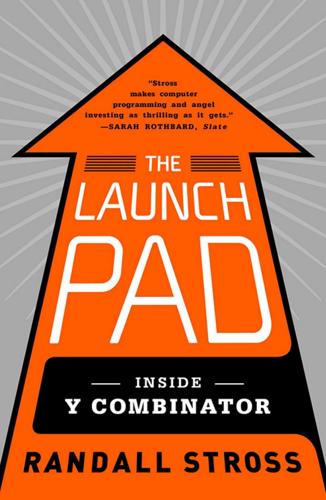
The Launch Pad: Inside Y Combinator, Silicon Valley's Most Exclusive School for Startups
by Randall Stross · 4 Sep 2013 · 332pp · 97,325 words
lot smarter. Which, if you think about it, is roughly what you hope to get from a graduate program.6 In the spring of 2005, Justin Kan was a twenty-one-year-old senior at Yale. He and his near lifelong friend Emmett Shear, also twenty-one, were working on a Web
…
said it out loud.” • A group of four eighteen-year-old college freshmen comes in. They’d received the same sort of qualified rejection that Justin Kan and Emmett Shear had received when applying to the first batch. Once seated, a member of the team gives Graham an update: “After we got
…
young. They do not feel older than their age.” • From the beginning, Graham has been partial to young teams in which all members are hackers. (Justin Kan wasn’t a computer science major like Emmett Shear, but he had learned how to code on his own and could list a series of
…
live anywhere else but Silicon Valley. They needed to be free to move to the Valley. To illustrate rootlessness, Graham mentioned Kiko, the company that Justin Kan and Emmett Shear had founded in Cambridge in the first batch of YC investments the year before. Kan and Shear were unencumbered with romantic attachments
…
residence at YC, and three founders who had been in the first YC batch in Cambridge in 2005: Sam Altman, the cofounder of Loopt, and Justin Kan and Emmett Shear, the two Yale students whose startup career had begun with Kiko, the online calendar site.26 Near the end of the summer
…
if they left college to pursue their ideas.1 As a debate spread across online forums about whether entrepreneurial young adults should bother with college, Justin Kan posted an essay on his personal blog in early 2011 about his own college experience at Yale.2 He tries his best to come up
…
anything resembling a plan, other than to start and see how much interest Justin.tv would attract. About two thousand people became regular viewers, making Justin Kan a minor celebrity who was recognized on the streets of San Francisco. But that was not a base sufficient to support even a tiny four
…
publishers. While the gaming initiative progressed, so too did the work on mobile video sharing. In March, at the South by Southwest conference in Austin, Justin Kan and Michael Seibel introduced the Socialcam app for both iPhone and Android. After an updated version was released the next month, the app facilitated video
…
before Paul Buchheit, who came of age before Harj Taggar, who came of age before Sam Altman. Additional coverage was provided by the other partners: Justin Kan, Emmett Shear, Garry Tan, and, near the end of the summer, the newest partner, Aaron Iba. Founders sense that some partners like their startup’s
…
friends are now involved in some project they don’t want to abandon. The better they are, the more likely this is to happen.”7 Justin Kan and Emmett Shear, the part-time partners who had been founders in YC’s first batch, were exemplars of close friends who worked well together
…
a change in the very way Walla carries himself all the time. “I’ve seen it time after time.” He offers another example of transformation: “Justin Kan seems so terrifyingly fearsome now. And I remember he seemed—” “I think it’s coachable, though,” says Tan. Graham continues his story about Kan. “During
…
, but they do show that there have been significant swings from batch to batch. One founder in the winter batch is Daniel Kan, twenty-five, Justin Kan’s younger brother. When he moved to the Bay Area in 2009, he had no interest in starting a startup and said he would never
…
same as if he had. Here he is at YC. And joining him as a cofounder is big brother Justin. Graham announces, “Part-time partner Justin Kan is in this batch with you! He has decided to do another startup.” They and a third cofounder have launched Exec in San Francisco, which
…
able to witness, for the first time, the spectacle of someone having office hours with himself.” This gets a good laugh. This will effectively be Justin Kan’s third YC batch. Also in the winter batch is Michael Seibel, who has brought Socialcam to YC; this will count as his second time
…
requests for information, and I also imposed upon the other YC partners and staff members: Sam Altman, Trevor Blackwell, Paul Buchheit, Kate Courteau, Aaron Iba, Justin Kan, Kirsty Nathoo, Geoff Ralston, Renee Robinson, Emmett Shear, Harj Taggar, and Garry Tan. I wish to thank all for their assistance and for welcoming me
…
person, Matthew Fong, also was a cofounder when the Kiko application was submitted but decided a few days later not to pursue the project. 8. Justin Kan, “My Y Combinator Interview,” A Really Bad Idea blog, November 24, 2010, http://areallybadidea.com/34320844. 9. Kan, “Y Combinator Interview.” CHAPTER 2: OLDER 1
…
Chronicles blog, San Francisco Chronicle, March 12, 2012, http://blog.sfgate.com/techchron/2012/03/12/peter-thiel-to-teach-stanford-class-on-startups/. 2. Justin Kan, “Drop Out. Or Don’t,” A Really Bad Idea blog, February 27, 2011, http://areallybadidea.com/drop-out-or-dont. 3
…
. Justin Kan, “Selling Kiko,” A Really Bad Idea blog, February 21, 2011, http://areallybadidea.com/selling-kiko. 4. Justin Kan, “Why Starting Justin.tv Was a Really Bad Idea, but I’m Glad We Did It Anyway
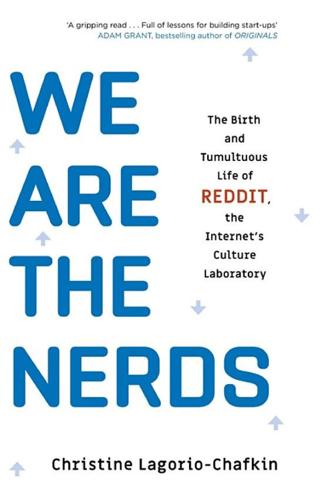
We Are the Nerds: The Birth and Tumultuous Life of Reddit, the Internet's Culture Laboratory
by Christine Lagorio-Chafkin · 1 Oct 2018
on their screen, one that refreshed regularly with new, interesting links. “Reddit changed every day, so you could see it improving over the summer,” said Justin Kan, one of the founders of Kiko. To say they were the first users is not entirely true. They were the first users aside from Huffman
…
among these lanky, awkward young men were several who within the decade would change the world—or at least the Internet. In the mix was Justin Kan, the cofounder of Kiko, who would go on to found a live-streaming company that transformed into Twitch, which more than one hundred million people
…
lonely. If he couldn’t be with Katie while she was finishing school, he could at least be with his friends. He missed fellow entrepreneurs Justin Kan and Emmett Shear, who’d moved west in September, and wanted to start right away on his new job of shepherding Reddit into its new
…
or in backyards, or nights at dive bars or karaoke. All alcohol-fueled, all a blast. Anonymity wasn’t always easy: His friends, such as Justin Kan, Snapchatted and Instagrammed frequently, and given their success, they lived lives at times filled with conspicuous consumption. Kan, along with Emmett Shear and Michael Seibel
…
regained his long-lost ability to focus fully on Reddit. r/The_Donald Steve Huffman and his friends celebrated that fall, at the wedding of Justin Kan and his longtime girlfriend, Kristine Oh. Two weeks later, they would have another celebration, at what had been dubbed Camp Reddit. It was part quarterly
…
left), brought together several soon-to-be well-known tech figures, including Huffman and Ohanian (third and fourth from left), Chris Slowe (fifth from left), Justin Kan (front seated), Aaron Swartz (immediately behind him), and Sam Altman (arms crossed). Courtesy of Kate Courteau. After Y Combinator ended, Aaron Swartz’s company, Infogami
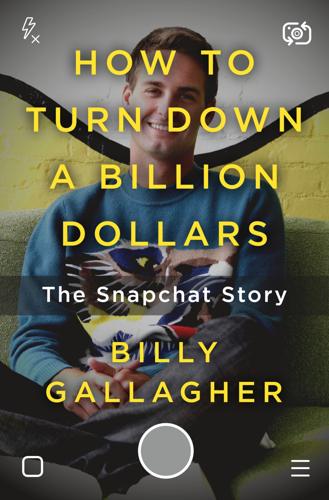
How to Turn Down a Billion Dollars: The Snapchat Story
by Billy Gallagher · 13 Feb 2018 · 359pp · 96,019 words
followers thanking her for helping them with their anxiety. One Snapchat star found the platform years after attempting stories on his own. In 2007, entrepreneur Justin Kan launched Justin.tv, a 24/7 show of his life, broadcast from a webcam on his head. He thought it was a cool, crazy idea
…
laughing hysterically. Her video has been viewed almost 160 million times. Live video was great for celebrities and interesting events, but, as we saw with Justin Kan’s Justin.tv experiment, most people rarely have interesting enough lives to broadcast live video. Neither Facebook nor Snapchat had fully figured out their content
…
Venture Partners Intel Interview, The (film) Intuit iOS James, Nicole Jenner, Kylie Jobs, Steve Jordan, David Starr Joss, Bob Jurgenson, Nathan Justin.tv (Justin Kan) Kan, Justin. See Justin.tv (Justin Kan) Kerr, Miranda Khan, Imran Kinney, Abbott Knight, Phil Kravitz, David Krishnan, Sriram Kundera, Milan Land, Edwin Landrieu, Mitch Lane, Randall Lasky, Mitch
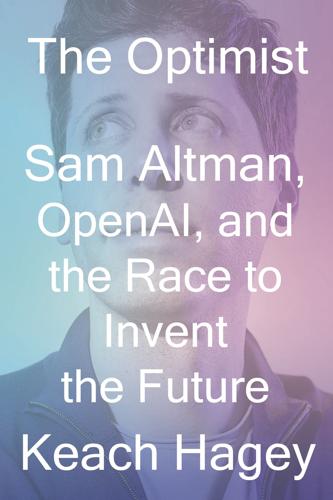
The Optimist: Sam Altman, OpenAI, and the Race to Invent the Future
by Keach Hagey · 19 May 2025 · 439pp · 125,379 words
something more like the link bookmarking site Delicious, whose “popular” page frequently linked to his essays.27 Also in this category were Emmett Shear and Justin Kan, both twenty-one, who had met at The Evergreen School for Gifted Children in Seattle and bonded over their shared passion for math and the
…
Start a Startup.” 23.Livingston, “Grow the Puzzle,” Posthaven. 24.Randal Stross, The Launch Pad: Inside Y Combinator (New York: Portfolio/Penguin, 2012), 3. 25.Justin Kan, “My Y Combinator Interview,” A Really Bad Idea Blog, November 24, 2010. 26.Aaron Swartz, “SFP: Come See Us,” Aaron Swartz’s blog. 27.Lagorio
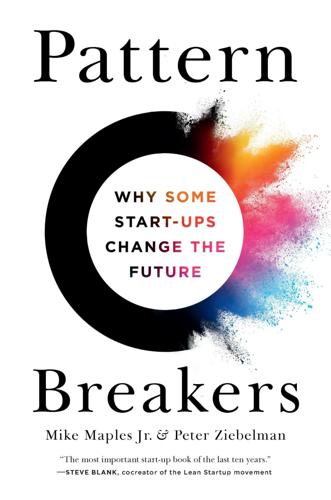
Pattern Breakers: Why Some Start-Ups Change the Future
by Mike Maples and Peter Ziebelman · 8 Jul 2024 · 207pp · 65,156 words
many years earlier was very different from the product Amazon had acquired: it was originally an internet reality show called Justin.tv that featured cofounder Justin Kan livestreaming his daily activities 24/7. After a few years and a lot of major course corrections, Justin.tv launched Twitch as a separate entity
…
best ideas seem bad but turn out to be non-consensus and right. Let’s go back to the beginning of my business relationship with Justin Kan and what became Twitch. On the surface, nothing about it suggested breakthrough success in the making. I was wrapping up a pitch meeting in Palo
…
it?” “I guess I do now,” I said, as our new guest sat down next to me and took out a laptop. “My name is Justin Kan,” he said, “and I’m with a start-up called Justin.tv. I’m going to create the internet’s first livestreaming reality show where
…
or incremental success. They require you to think and act differently. In the chapters ahead, you’ll discover how founders we’ve already introduced, including Justin Kan and Emmett Shear of Twitch, Osman Rashid and Aayush Phumbhra of Chegg, and Logan Green and John Zimmer of Lyft, bravely upheld their groundbreaking visions
…
. Elon Musk achieved the impossible twice, with Tesla and SpaceX, because he dared to defy the world’s definitions of what was possible—and permissible. Justin Kan, Emmett Shear, Kyle Vogt, and Michael Seibel had the wrong idea at first but the right insight, which they combined with a kick-ass mentality
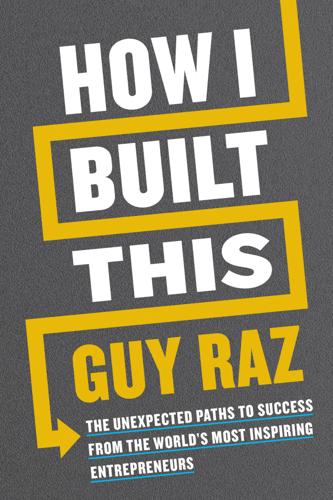
How I Built This: The Unexpected Paths to Success From the World's Most Inspiring Entrepreneurs
by Guy Raz · 14 Sep 2020 · 361pp · 107,461 words
to grow or survive, but also identifying something else to do and/or some other place to do it. That’s how it was for Justin Kan, Emmett Shear, and Twitch, the livestreaming video platform that got its start in March 2007 as Justin.tv, a single 24-7 live feed of
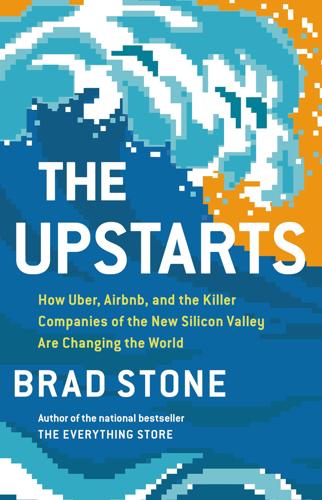
The Upstarts: How Uber, Airbnb, and the Killer Companies of the New Silicon Valley Are Changing the World
by Brad Stone · 30 Jan 2017 · 373pp · 112,822 words
that spring, Gebbia and Chesky brought mock-ups of the new design to Michael Seibel at Justin.tv. Seibel and his Justin.tv co-founder, Justin Kan, observed their progress, identified problems, and sent them away to make improvements (the early payment mechanism, they recalled, was a particular mess). Seibel and Kan
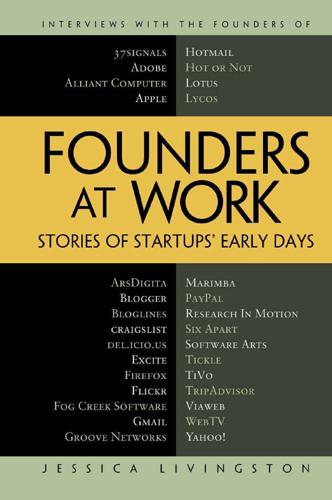
Founders at Work: Stories of Startups' Early Days
by Jessica Livingston · 14 Aug 2008 · 468pp · 233,091 words
away by Sam. His poise and intelligence, and just the way he was. We knew that there was something special about him. We also had Justin Kan and Emmett Shear of Justin.tv. We originally funded them to make an online calendar called Kiko. They built it that summer and got a
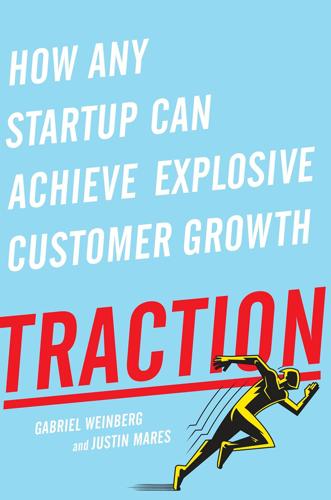
Traction: How Any Startup Can Achieve Explosive Customer Growth
by Gabriel Weinberg and Justin Mares · 5 Oct 2015 · 232pp · 63,846 words
of AppSumo Patrick McKenzie, CEO of Bingo Card Creator Sam Yagan, Cofounder of OkCupid Andrew Chen, Investor in 500 Startups Dharmesh Shah, Founder of HubSpot Justin Kan, Founder of Justin.tv Mark Cramer, CEO of Surf Canyon Colin Nederkoorn, CEO of Customer.io Jason Cohen, Founder of WP Engine Chris Fralic, Partner

Without Their Permission: How the 21st Century Will Be Made, Not Managed
by Alexis Ohanian · 30 Sep 2013 · 216pp · 61,061 words
front page for the Internet. Then, as you know by now, we found our audience. Our friends from the Y Combinator summer class of 2005, Justin Kan and Emmett Shear, sold their company, Kiko.com, for $258,100 (on eBay, of all places) when Google launched their web-based calendar. The Google